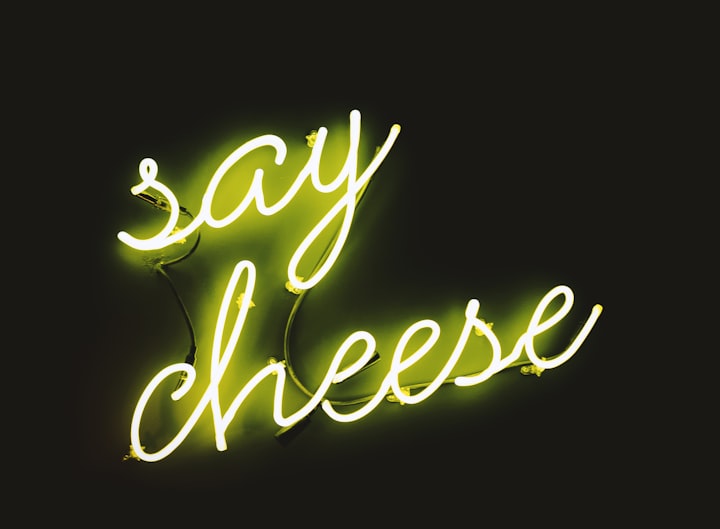Laughter Is Very Important to Our Bodies And Minds - Here's What The Research Says
Really Is it Increases our Lifespan?

Laughter Is Very Important to Our Bodies And Minds - Here's What The Research Says
Entertainment and pleasant surprises -- along with the laughter they could trigger -- add a feel to the fabric of everyday life.
Those giggles and guffaws may look like just idiotic throwaways. In response to funny occasions, bliss really requires a lot of work because it activates many regions of the brain: regions that control motor, psychological, cognitive, and social communicating.
As I found when writing"An Introduction to the Psychology of Humor," researchers now love laughter's capability to enhance physical and psychological well-being.
Laughter's physical power
People begin laughing at infancy when it helps build muscles and upper body strength. Laughter isn't just breathing. It depends on complex combinations of facial muscles, often involving the eyes, head, and shoulders.
Laughter -- performing it or observing it -- activates multiple brain areas:
* The motor cortex, which controls muscles.
* The frontal lobe, which makes it possible to comprehend context.
* The limbic system, which modulates favorable emotions.

Turning all these circuits strengthens neural connections and assists a healthy brain in coordinating its action.
By activating the neurological pathways of emotions like joy and mirth, laughter can enhance your mood and create your physical and emotional response to stress less intense.
For instance, laughing might help control the neurotransmitter serotonin's brain levels, similar to what antidepressants do. By lowering your brain's reactions to threats, it limits the release of hormones and hormones like cortisol, which can wear down your cardiovascular, immune, and metabolic systems as time passes.
Laughter's form of such as an antidote to stress weakens these systems and raises vulnerability to diseases.
Laughter's cognitive capability
A fantastic sense of humor and the laughter that follows relies on an ample measure of social intelligence and working memory resources.
You need to solve the surprising behavior or event emotionally -- otherwise, you won't laugh; you might just be confused rather. Inferring the others' intentions and taking their view can enhance the level of laughter and amusement you feel.
You have to believe that other possibilities besides the literal existence, think about being entertained by comic strips with talking animals, like those found in"The Far Side."
Laughter's social power
Many cognitive and social skills work together to help you monitor when and why bliss happens during conversations. You do not even have to listen to a laugh to be able to laugh. Deaf signers punctuate their sentences that are signed with bliss, much like emoticons in the written text.

Beginning early in life, babies' laughter is an external sign of pleasure that helps strengthen bonds with caregivers.
Afterward, it is an external indication of discussing an appreciation of this situation.
By practicing small laughter daily, you can improve your social skills, which might not come naturally to you. If you laugh in response to humor, you discuss your feelings with others and learn from risks that your response will be accepted/shared/enjoyed by other people rather than be rejected/ignored/disliked.
In studies, psychologists have discovered that guys using Type A personality characteristics, including competitiveness and time urgency, tend to laugh more, while women with these traits laugh.
Laughter's mental power
Positive psychology researchers study how people can live meaningful lives and thrive. Laughter generates positive emotions that lead to this sort of flourishing.
These feelings -- like entertainment, happiness, mirth, and pleasure -- build resiliency and increase creative thinking. They increase subjective well-being and life satisfaction.

Researchers find that these positive emotions experienced with humor and laughter correlate with enjoying life's meaning and assist elderly adults in holding a benign view of problems they've faced over a lifetime.
Laughter in response to entertainment is a healthy coping mechanism. If you laugh, you take yourself or the situation less badly and might feel permitted to problem-solve.
For instance, psychologists quantified the frequency and intensity of 41 people's laughter over a couple of weeks, together with their physical and mental stress ratings.
Whether the cases of bliss have been powerful, moderate, or weak in intensity didn't matter.
Perhaps you wish to catch a few of the benefits on your own -- will you force laughter to work for you?

An increasing number of therapists advocate using humor and laughter to help customers build trust and improve work environments; a review of five distinct studies found that well-being measures did increase after laughter interventions.
Sometimes known as home play instead of assignments, these interventions take everyday humor activities -- surrounding yourself with funny people, watching a comedy that makes you laugh, or writing down three humorous things that happened today.
It's possible to practice laughing when alone. Intentionally have a perspective that appreciates the funny side of events. Laughing yoga is a method of utilizing breathing muscles to accomplish the positive physical reactions of natural Discussion with forced laughter (ha ha ha ha hee hee ho ho).
Researchers today certainly aren't laughing off its worth, but a good deal of this research on laughter's influence on mental and physical health relies on self-report steps.
More psychological experimentation around laughter or the contexts in which it occurs will probably encourage the significance of laughing during your daily life and perhaps even suggest more methods to harness its benefits intentionally.






Comments
There are no comments for this story
Be the first to respond and start the conversation.